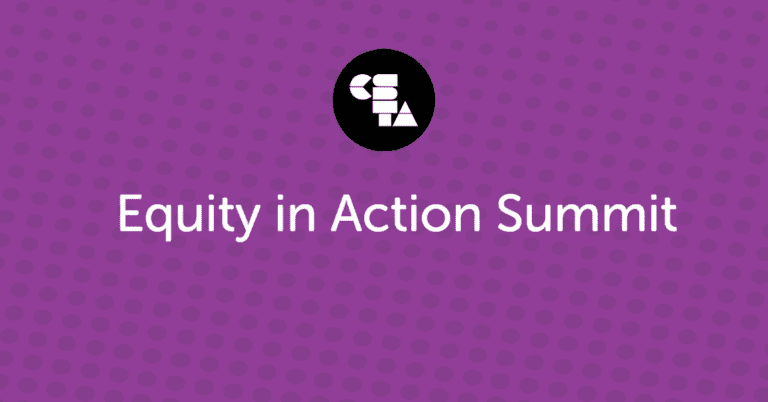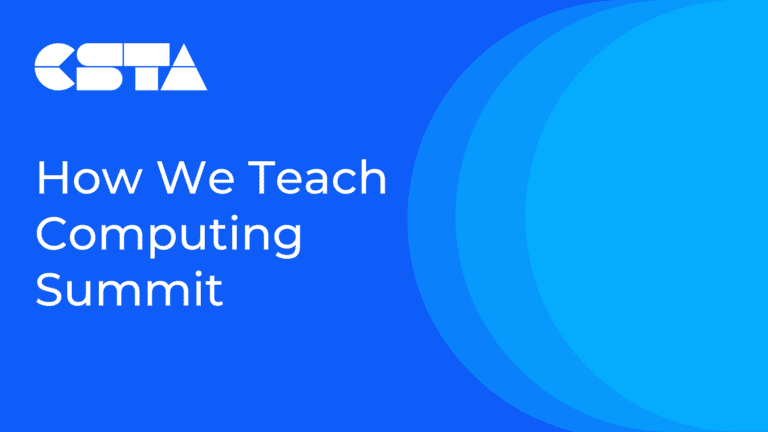Resources Library
Looking for a specific resource or have one you’d like to suggest?
FEATURED RESOURCES
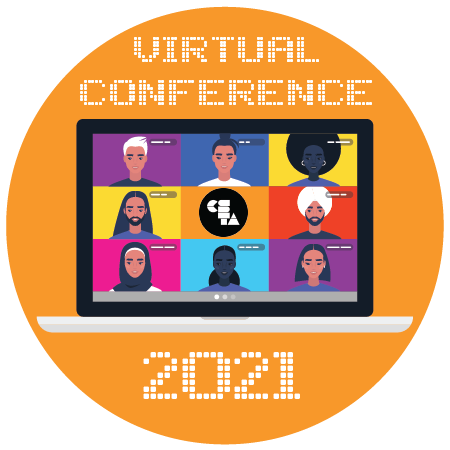
Read Accessible CS Learning with Replit
During extended periods of at home learning, the equity gap of computing education access has been exacerbated further. Varying ability...
















Read Building CS Partnerships
This session will focus on how to work within your community to develop and grow community partnerships. Presenters will cover...
















Read My CSP Experiment
In past years, I have always taught AP CSP using a block-based programming language and approach—specifically, Snap! and App Lab....
















Read A Computational Thinking Integration Model for K–12
Computational thinking (CT) has grown in popularity over the last few decades, with an increasing number of K–12 educators integrating...
















Read Looking Back, Looking Forward – Student Insights
Presentation of college students insights into influences on their CS learning that impacted, influenced, and supported their choice to take...
















Read Selecting and Supporting a New CS Teacher
Finding a teacher to teach the class does not need to be a barrier to building a CS program in...
















Read Unplugged AI Games for Middle School Integration
Include artificial intelligence in your language arts, social studies, math, and science classes! This session will introduce games and activities...
















Read Thunkable App Development for Middle Grades and AP CSP
This session is an introduction to the Thunkable App Development platform and the Thunkable Course developed by the #CSinSF team...
















Read Teaching Coding Fluency With Turingscraft’s CodeLab Service
CodeLab provides hundreds of class-tested, instructor-vetted coding exercises for students in introductory programming courses. Each exercise involves writing a small...
















Read Teach STEAM + Core Subjects… No School Building Required!
Are you interested in delivering high-quality, engaging lessons in core subjects, without sacrificing computer science and robotics? Join us as...
















Read Making CS More Engaging in an Interconnected World
The majority of applications we interact with daily could not function in isolation. For these applications, communicating with other programs...
















Read Differentiating: CS Student–Centered Instructional Continuum
In this session, we’ll share the Computer Science Student-Centered Instructional Continuum (CS-SCIC), a new framework to support PreK–12 instructors in...
















Read Network Sorting: Become the Computer
Learn about an unplugged activity that can be used over and over again for numerous kinds of different content. Geared...
















Read Crafting and Coding with Paper Circuits
Paper circuits combine circuit building and coding with arts and crafts, using familiar crafting materials such as tape, markers, and...
















Read Power of the Portrait: Learning to Code Through Art
Join the Code/Art team for a fun, engaging exploration of the intersection of art and coding as a way to...
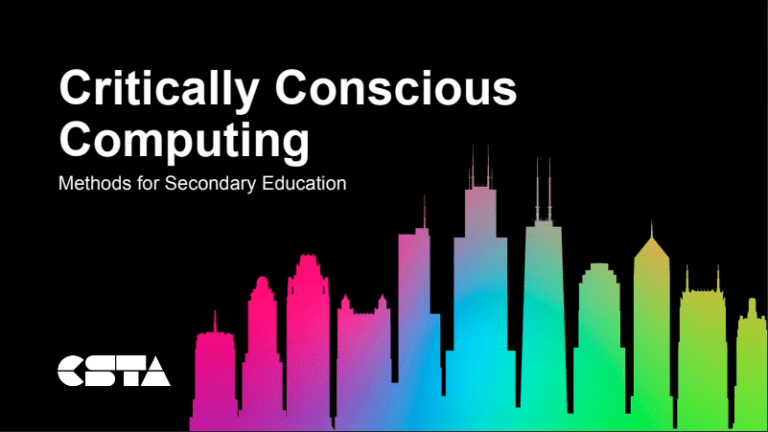

Read Critically Conscious Computing: Methods for Secondary Education
CS teaching often aims to be apolitical, maintaining a strict focus on technical skills. However, students’ lives and experiences are...
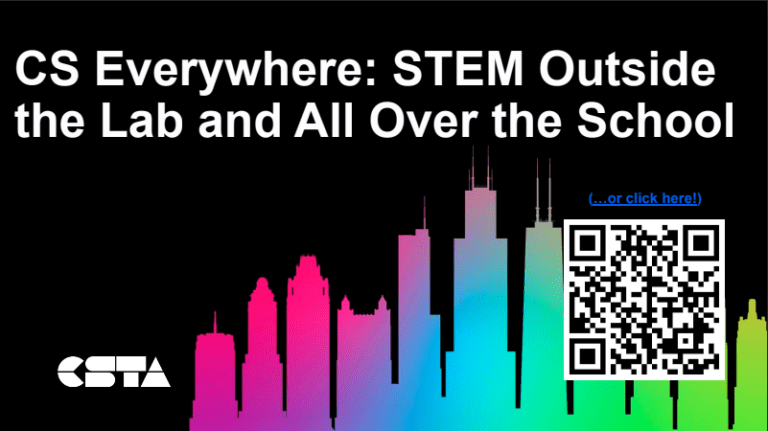

Read CS Everywhere: STEM Outside the Lab and All Over the School
Are you the only technology teacher in your school or district? Are you struggling to move past early adopters to...
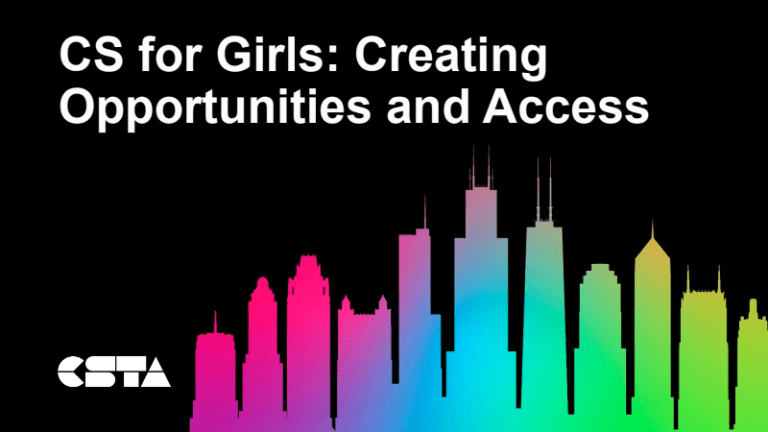

Read CS for Girls – Creating opportunities and access
Are you looking for ways to create opportunities an access for girls in CS? Well, look no further. We’ll look...


Read Cybersecurity Virtual Escape Room: Stop a Ransomware Attack on a Car!
Come experience a virtual escape room designed to get students solving problems in teams as cybersecurity analysts! Our escape room...
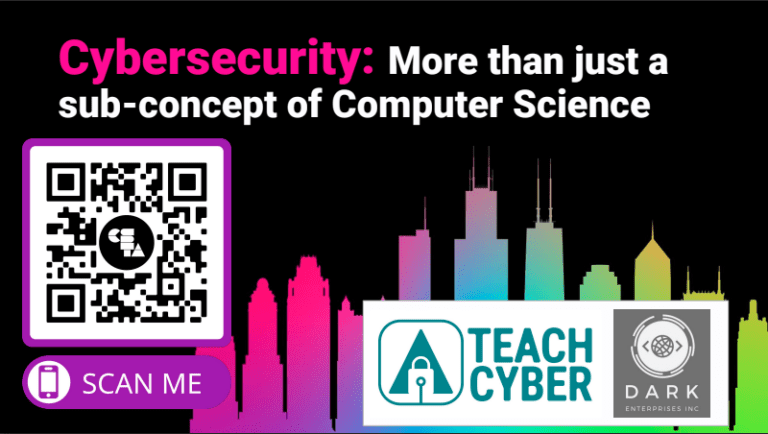

Read Cybersecurity: More than just a Sub-Concept of Computer Science
From finance to healthcare to retail to education, cybersecurity affects nearly every public and private industry sector across the globe....
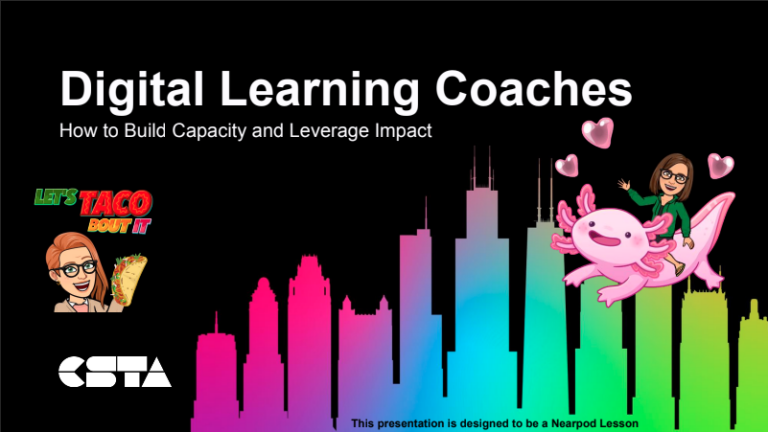

Read Digital Learning Coaches: How to Build Capacity and Leverage Impact
In this session, district and site leaders will learn about the position of a Digital Learning Coach (DLC). We will...


Read Empowering Student Voice through Data and Practice
CAPE (capacity, access, participation, and equity) is a framework designed to assess equity throughout the computer science education ecosystem. Based...
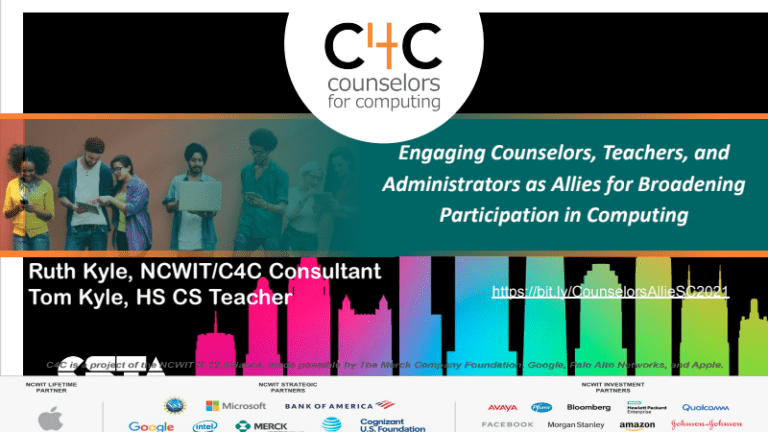

Read Engaging Counselors, Teachers, and Administrators to Broaden Participation in Computing
In this presentation, attendees will learn how to develop effective partnerships with counselors, administrators, and fellow teachers to assist in...
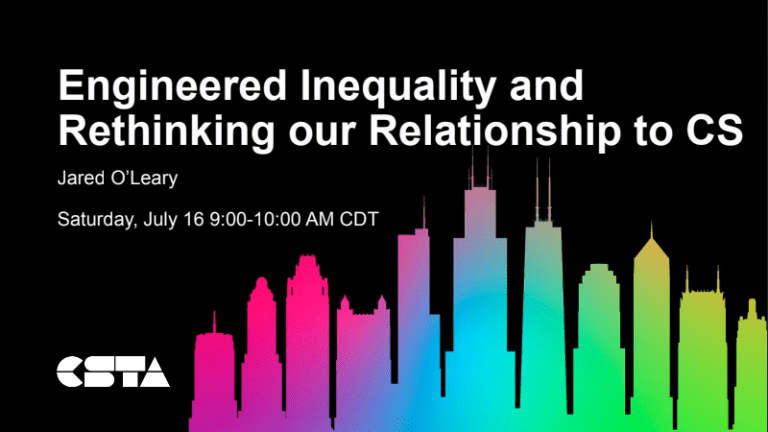

Read Engineered Inequality and Rethinking Our Relationship to CS
Discussions around the digital divide often revolve around the inequalities created by a lack of access to technology or CS...



